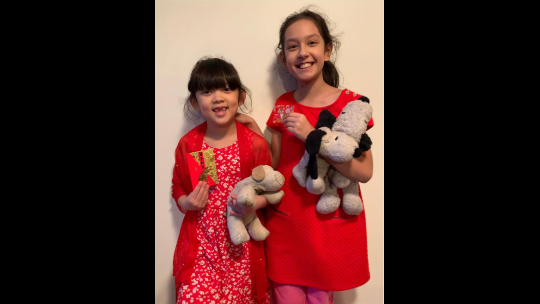Hawaii is a melting pot of races, ethnicities, and cultures that’s reflected in our cuisine, traditions, and languages. At least 130 languages are spoken in Hawaii. As National Learn a Foreign Language Month gets underway, we explore how being bilingual or multilingual can open a world of opportunity.
Benefits of bilingualism
There are 7,168 languages spoken globally today. Being able to speak more than one language helps to bridge the communication gap and emphasizes the human connection with people from different countries.
“It means you can talk to more people, learn about their world view, and do business more easily,” says Theres Gruter, Ph.D., professor and graduate chair of the Department of Second Language Studies at the University of Hawaii at Manoa. “While modern technology makes it easy to translate text, it can’t replace someone welcoming you and asking what you need in a language you’re comfortable with when you arrive at a hotel in another country. And it’s hard to imagine that technology will ever allow you to sit down and talk story with someone if you don’t share their language.”

Bridging the gap: bilingual sisters with their great-grandmother in Taiwan.
Knowing more than one language may also help you land a job, especially as many businesses expand into international markets. The U.S. is mostly monolingual, with nearly 80% speaking only English. But most of the world is multilingual; in Europe, two-thirds of adults say they know at least one foreign language.
There may even be brain-boosting advantages to being bilingual. Research shows they’re often better than monolingual speakers at prioritizing tasks and multitasking. Their brains juggle languages, switching between translating, speaking, and listening.
Multicultural and multilingual
While most people in the U.S. only speak English, living in Hawaii is a unique experience. We’re surrounded by so much diversity; in fact, Hawaii was ranked the most racially and ethnically diverse state in the U.S. About 25% of residents speak a language other than English at home.
“And that’s not counting Pidgin, or what linguists call Hawaii Creole English, which is considered a language in its own right,” says Gruter. “So if you can switch back and forth between Pidgin and English, you have every right to call yourself bilingual.”
Most children grow up learning their family’s heritage language at home, but that’s not always the case.
“Many immigrant families feel that for their children to be successful in the U.S., they should speak only English, and so the kids stop using their heritage language at home,” explains Gruter. “But it’s not necessary to give up one language to master another. Research has shown that children will become fluent in English by hearing it regularly at school. Using the family’s heritage language at home is the best and easiest way for a child to grow up fluently bilingual.”

Celebrating Chinese New Year at home.
The Hawaii Department of Education encourages high school students to learn other languages through its Seal of Biliteracy program. The award is given to graduating seniors proficient in the state’s two official languages, English and Hawaiian, or one of the official languages and one additional language.
“This includes not just languages that are typically taught in high school like Spanish, Latin, or Mandarin Chinese, but also all the languages that many families in Hawaii speak at home, such as Tagalog, Vietnamese, Cantonese, and Chuukese,” says Gruter.
.jpg)
Ke Kula o Nawahiokalaniopuu Iki seniors receive their Seal of Biliteracy medallions. Photo courtesy Hawaii State Dept. of Education
The goal is to help students and families recognize that being able to speak and write in more than one language is an asset. Once students pass proficiency tests, a Seal of Biliteracy will appear on their high school transcript.
“It showcases skills that are attractive to future employers and college admissions offices,” says Gruter.
Learning a new language
It’s never too late to learn a new language. If you’re interested, consider your motivation for learning.
“Is it because you enjoy watching TV shows from a particular country? Is it because you plan to travel? The more motivation you have to learn a particular language, the more energy you’ll find to persist and the more you’ll enjoy the journey and find success,” says Gruter.
You can try a language learning app or enroll in a language class. Remember that learning a language takes time, effort, practice, and patience. And being bilingual or multilingual doesn’t necessarily mean being fluent. It’s about being able to communicate effectively.
“We often make the mistake of measuring ourselves against people who are native speakers of a language. The key to successful language learning is not to set unrealistic goals,” says Gruter. “With continued practice, you’ll get more comfortable with communicating in a new language. And if you can make peace with the idea that it’s OK to have an accent and make the occasional mistake, you’ll start to enjoy the benefits of living a multilingual life.”
SU24F




